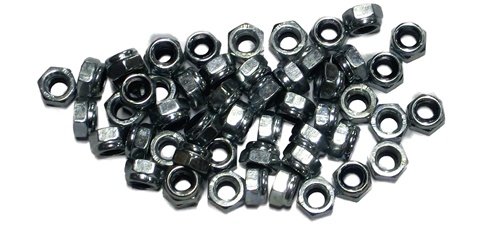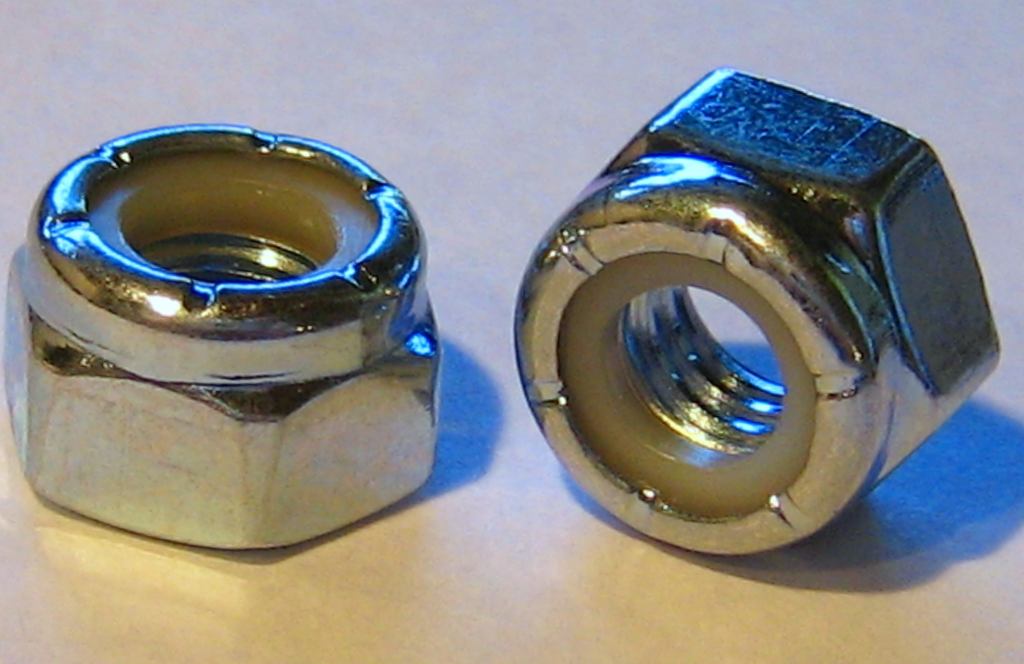Nylock Nut
Nylock nuts, also known as nylon insert lock nuts, are a type of fastener designed to resist loosening under vibration and torque. These nuts feature a nylon collar insert that provides a locking mechanism, preventing the nut from backing off the threaded bolt or studs.
1. Design and Construction:
Material: Nylock nuts are typically made from materials such as steel, stainless steel, or brass, depending on the application requirements.
Nylon Insert: The nylon insert is usually located at the top of the nut and is molded into a slightly smaller diameter than the internal thread of the nut. This creates a self-locking feature when the nut is threaded onto a bolt or stud.
2. Functionality:
Locking Mechanism: The nylon insert acts as a locking mechanism by providing resistance against vibrations and rotational forces. As the nut is threaded onto a bolt, the nylon insert creates a prevailing torque, which resists the nut from loosening.
3. Advantages:
Vibration Resistance: Nylock nuts are particularly effective in applications where vibration is a concern, as the nylon insert helps to maintain a secure and tight connection.
4. Applications:
Automotive: Nylock nuts are commonly used in automotive applications where vibrations are prevalent, ensuring that critical components remain securely fastened.
Machinery: These nuts are used in various machinery and equipment to prevent loosening due to operational vibrations.
Construction: Nylock nuts are employed in construction and structural applications where maintaining a secure connection is vital.
5. Sizing and Standards:
Nylock nuts are available in a range of sizes, and their dimensions are typically specified according to standard thread sizes (e.g., metric)
Common standards for Nylock nuts include DIN 982 (metric).
6. Installation:
Nylock nuts are installed like regular nuts but require additional torque due to the prevailing torque created by the nylon insert. It’s important not to over-torque during installation to avoid damaging the nylon insert.
When selecting Nylock nuts for a specific application, it’s crucial to consider factors such as the material of the nut, the type of bolt or stud being used, and the environmental conditions.
Considerations:
Temperature: If your application involves high temperatures, DIN 982 Nylock Nut might be a better choice due to its metal locking feature.
Chemical Exposure: If the environment involves exposure to certain chemicals, DIN 982 might be more suitable due to its metal construction.


